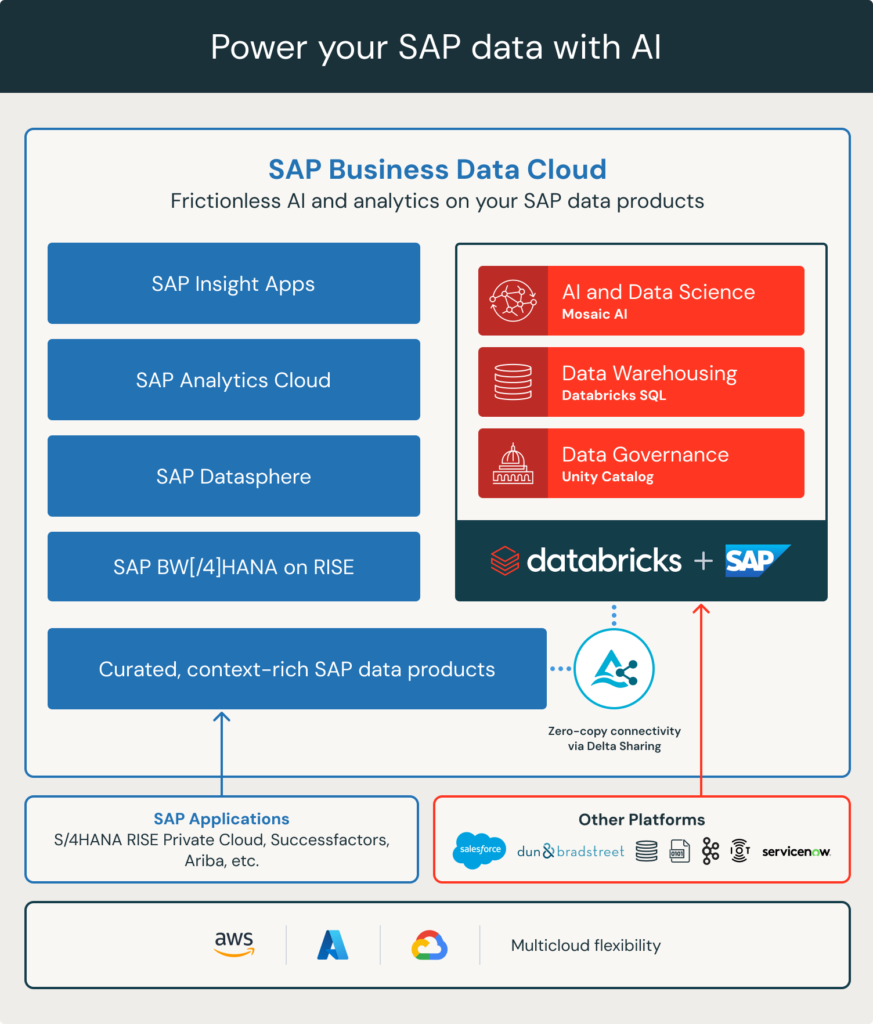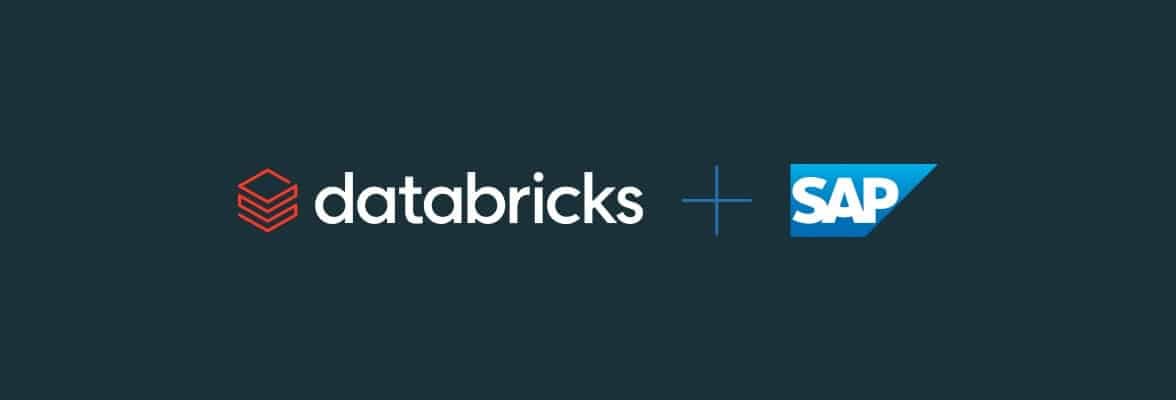Databricks has announced a strategic partnership with SAP to launch SAP Databricks, a new product aimed at revolutionizing how companies manage, analyze, and leverage their data. The solution will be available within the SAP Business Data Cloud and will operate on Azure, AWS, and Google Cloud.
This collaboration has a significant impact on the industry because it combines SAP’s wealth of business data with Databricks’ analytical power and artificial intelligence. With SAP Databricks, organizations will be able to integrate, process, and leverage their ERP, human resources, supply chain, and financial management data more efficiently and agilely.
A New Standard in Data Integration
The importance of SAP data in global enterprises is undeniable. SAP is the backbone of enterprise resource planning (ERP) systems, with tools like Ariba for procurement, SuccessFactors for talent management, and Concur for expense management. However, until now, extracting and combining that data with other external sources has been a considerable challenge.
With SAP Databricks, clients will be able to combine their SAP information with data from other platforms to gain a comprehensive view for optimizing processes, improving decision-making, and developing advanced artificial intelligence models.

The key element of this solution is Delta Sharing, which allows sharing and analyzing SAP data across all current and future Databricks implementations. This unlocks new opportunities for predictive analytics, business intelligence, and automating business processes.
“Our goal is to make Heineken the best-connected brewery in the digital era. To achieve this, we have developed a single source of truth for all our data, from consumers to suppliers and products,” commented Jelle van Etten, Global Head of Data Platforms at Heineken. “With SAP and Databricks, we can leverage all our data to better understand our customers, optimize marketing campaigns, and improve operational efficiency across all our markets.”
A Multi-Million Dollar Investment to Drive SAP Databricks Adoption
As part of this partnership, Databricks has announced a $250 million investment to support its customers and partners in implementing SAP Databricks. This investment is aimed at facilitating platform adoption, assisting with data migrations, and enhancing the development of new AI applications based on SAP business data.
“Our collaboration with Databricks and SAP will generate valuable AI-driven insights across various business functions, including sales, finance, and supply chain, helping us connect with our audiences across any channel at scale,” noted Bin Mu, Vice President of Enterprise Data & Analytics at Adobe Technology Services.
The Impact of SAP Databricks on Data Analytics
This alliance represents a significant advancement for companies that rely on SAP for their operations. Key benefits of SAP Databricks include:
- Unified access to business data: frictionless integration between SAP data and other data sources.
- Advanced AI and machine learning capabilities: optimization of predictive models based on critical business data.
- Increased productivity and efficiency: simplification of analytical processes through a unified data architecture.
- Robust data governance: management of permissions and access to business data via Unity Catalog.
A Step Forward in Business Digital Transformation
The announcement of SAP Databricks confirms the growing importance of artificial intelligence and data management in the digital transformation of businesses. The ability to unify, analyze, and utilize data in real-time will be a key differentiator for organizations looking to stay competitive in an increasingly data-driven market.
What’s Next for SAP Databricks?
The solution is in the process of being launched and is already available for customers who wish to join the waiting list. In the coming months, more companies are expected to adopt SAP Databricks as their primary platform for advanced data analysis and business intelligence.
This partnership between Databricks and SAP has the potential to redefine how businesses use their data to drive innovation, improve efficiency, and make strategic decisions based on real-time information.
via: DataBricks

